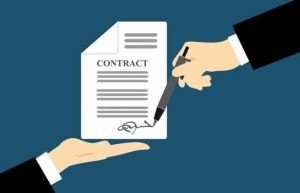Are you aware of the legal responsibility that employers hold for their employees’ actions? Negligent hiring is a legal concept that holds employers liable for the actions of their employees if they knew or should have known that the employee had a history of misconduct or criminal behavior that could lead to harm in the workplace. Negligent hiring can result in costly lawsuits, damage to your company’s reputation, and even criminal charges.
This article will discuss the concept of negligent hiring and provide you with best practices for avoiding it in your hiring process.
As an employer, it is crucial to understand your legal responsibilities in hiring and managing your employees. Negligent hiring can occur when you fail to conduct a proper background check on a potential employee, ignore red flags in the hiring process, or fail to take action when you become aware of an employee’s misconduct.
By being proactive and implementing best practices for hiring and managing your employees, you can mitigate the risk of negligent hiring and protect your company from potential legal and financial consequences.
Key Takeaways
- Negligent hiring can result in costly lawsuits, damage to reputation, and criminal charges.
- Thorough background checks and vetting processes are essential to avoid the negative consequences of negligent hiring.
- Red flags in the hiring process include criminal history, substance abuse, and unstable employment history.
- Proper training, employee monitoring, and a safe workplace culture can help prevent employee misconduct and accidents.
Definition of Negligent Hiring
Negligent hiring is a serious issue that can lead to legal consequences. It is a term used to describe employers being held responsible for their employees’ misconduct. This means that if an employer hires someone with a history of violence or theft and that employee goes on to harm someone or steal from the company, the employer can be held liable for their actions.
To avoid negligent hiring, employers must thoroughly screen potential hires, conduct background checks, and verify references. They must also ensure that they’re hiring individuals who’re qualified and competent for the job. By taking these precautions, employers can significantly reduce the risk of hiring someone who could potentially harm others or damage the company’s reputation.
Negligent hiring is not only a legal issue but also a moral one. Employers have a responsibility to provide a safe and secure workplace for their employees and customers.
Employer Responsibilities
As an employer, you have legal obligations that you must fulfill to ensure a safe and productive workplace. Part of this includes taking measures to prevent employee misconduct through proper hiring practices.
Additionally, ethical considerations come into play when making decisions about who to hire and how to handle any issues that may arise.
Legal obligations
Employers have a duty to conduct thorough background checks on potential employees to ensure they’re not hiring someone with a history of misconduct. This legal obligation is crucial in preventing negligent hiring claims.
Negligent hiring occurs when an employer hires someone with a known history of violence, theft, or other criminal activity, and that person goes on to commit a similar act while employed by the company. Employers can be held liable for the damages caused by the employee’s actions.
To fulfill their legal obligations, employers should implement a comprehensive background check process that includes criminal records, employment history, and education verification. Additionally, employers should consider conducting periodic checks on current employees to ensure they haven’t engaged in any misconduct since their initial hiring.
By taking these steps, employers can demonstrate that they’ve taken reasonable care in hiring employees and can avoid costly lawsuits related to negligent hiring claims.
Ethical considerations
Ensuring ethical considerations are taken into account during the hiring process is crucial for companies to maintain a positive reputation and attract top talent. Employers have a responsibility to hire individuals who will uphold the values and standards of the organization.
This means conducting thorough background checks, verifying qualifications, and screening for any red flags that may indicate a potential for misconduct. Companies must also be transparent with job candidates about their expectations and policies regarding ethical behavior.
By setting clear guidelines from the outset, employees are more likely to understand what is expected of them and behave accordingly. Furthermore, organizations should have a system in place for reporting and addressing any ethical concerns that may arise.
This fosters a culture of accountability and integrity, which not only protects the company from liability but also contributes to a positive work environment. In short, taking ethical considerations seriously during the hiring process not only protects the company from legal consequences but also sets a foundation for a healthy, productive workplace.
Importance of Background Checks
Background checks are crucial in preventing negligent hiring, as they allow employers to gain valuable information about potential employees’ past behavior and criminal records. By conducting a thorough background check, you can ensure that the candidate you are considering is trustworthy and has a clean record. This is especially important for positions that involve working with vulnerable populations, handling sensitive information, or dealing with large sums of money.
To make the process of conducting background checks easier, you can use a variety of resources. One of the most common is a background check service, which provides a comprehensive report on a candidate’s criminal history, employment history, education, and more. Another option is to conduct your own research by checking public records, social media profiles, and references provided by the candidate. By taking the time to conduct a thorough background check, you can protect your organization from potential liability and ensure that you are hiring the best possible candidate for the job.
| Pros | Cons | My Opinion |
|---|---|---|
| Provides valuable information about a candidate’s past behavior and criminal record | Can be expensive, especially if using a background check service | Conducting a background check is a necessary step in the hiring process |
| Helps protect your organization from negligent hiring liability | Some information may not be available through public records or background check services | Employers should always conduct background checks before hiring a candidate |
| Can be a quick and easy process if using a background check service | Can delay the hiring process if conducting your own research | Background checks are a crucial part of due diligence when hiring new employees |
| Can help ensure the safety of vulnerable populations, such as children or the elderly | Some candidates may have a criminal record but have since reformed and deserve a second chance | Employers have a responsibility to ensure the safety and well-being of their employees and clients |
| Can help prevent theft, fraud, and other forms of misconduct | Can be seen as invasive or discriminatory if not conducted fairly and consistently | Employers should be transparent about their background check policies and procedures |
Red Flags in the Hiring Process
When hiring new employees, it’s important to keep an eye out for potential red flags that could indicate a risk to your business.
One of the biggest red flags is a criminal history, especially if it involves violent or financial crimes.
Substance abuse is another concern, as it can lead to workplace accidents and decreased productivity.
Finally, an unstable employment history can be a sign of a lack of commitment or reliability.
By being aware of these red flags, you can make more informed hiring decisions and reduce the risk of employee misconduct.
Criminal history
If you’re hiring someone with a criminal history, you need to be aware of the potential risks and take appropriate measures to protect your business and other employees. While it’s not illegal to hire someone with a criminal record, you have a responsibility to ensure that the employee won’t pose a threat to others.
Here are some steps you can take to minimize the risk:
-
Conduct a background check: This will help you learn more about the candidate’s criminal history and make an informed decision about whether to hire them.
-
Consider the nature of the crime: Not all crimes are created equal. For example, hiring someone with a DUI conviction to work in a warehouse may be less risky than hiring someone with a history of violent crime.
-
Have a conversation with the candidate: Ask them to explain the circumstances of their conviction and what they’ve done since then to rehabilitate themselves.
-
Implement safety measures: If you do decide to hire someone with a criminal history, make sure you have policies in place to protect your business and other employees. For example, you may want to restrict their access to sensitive information or require them to have a supervisor present at all times.
By taking these steps, you can reduce the risk of negligent hiring and protect your business from potential lawsuits or reputational damage. Remember, it’s always better to be safe than sorry when it comes to hiring employees with criminal histories.
Substance abuse
Now that you’ve learned about the importance of considering criminal history in the hiring process, let’s dive into another crucial aspect – substance abuse.
As an employer, it’s your responsibility to ensure that your employees are fit to work and can perform their duties safely and efficiently. Substance abuse can impair judgment, coordination, and cognitive function, leading to serious accidents, injuries, and even fatalities in the workplace.
Therefore, it’s essential to screen potential hires for substance abuse and implement policies and programs to prevent and address it among current employees. According to the National Council on Alcoholism and Drug Dependence (NCADD), substance abuse costs employers billions of dollars each year in lost productivity, absenteeism, accidents, and healthcare expenses.
Furthermore, drug and alcohol use can increase the risk of theft, violence, and other criminal behavior, putting your business at risk of legal and financial consequences. By implementing drug testing, education, and counseling programs, as well as providing resources for employees struggling with addiction, you can create a safer and more productive work environment while also protecting your company from liability.
Unstable employment history
As an employer, you’ll want to take into consideration an applicant’s unstable employment history when making your hiring decision. This is because an unstable employment history might indicate that the applicant is not reliable or committed to their work.
An applicant with a history of frequent job changes or gaps in employment may have difficulty adjusting to your company’s culture and expectations. They may also be more likely to quit or be terminated, which can be costly and disruptive for your business.
To avoid hiring a candidate with an unstable employment history, you can ask them to explain the reasons for their past job changes or gaps in employment. If they have a valid explanation, such as pursuing further education or caring for a family member, it might not be a cause for concern. However, if they have a history of job hopping without a good reason, it may be a red flag.
You can also check their references and do a background check to verify their employment history. By being thorough in your hiring process, you can avoid the risk of negligent hiring and protect your business from potential employee misconduct.
Mitigating Risk in Hiring
When it comes to mitigating risk in hiring, there are three key points to keep in mind.
First, it’s important to provide thorough employee training to ensure that everyone understands company policies and procedures.
Second, ongoing employee monitoring can help identify potential issues before they become major problems.
And finally, creating a safe workplace culture that values open communication and transparency can go a long way in preventing incidents from occurring in the first place.
By focusing on these areas, you can help reduce your organization’s risk and promote a more positive work environment.
Employee training
Proper employee training can help prevent instances of negligence and misconduct in the workplace, ultimately protecting both the employer and the employees themselves. By providing comprehensive training, employees are better equipped to understand company policies, procedures, and expectations. They are also trained on various safety protocols and risk management strategies, reducing the likelihood of accidents or incidents occurring.
Moreover, training allows employees to develop the necessary skills and knowledge to perform their job duties effectively. This, in turn, leads to increased productivity and job satisfaction. Well-trained employees are also more likely to identify and report any potential misconduct or safety concerns, allowing employers to address these issues before they escalate into more serious problems.
In short, employee training is a crucial aspect of mitigating risk in hiring and ensuring a safe and productive work environment for all.
Employee monitoring
Effective employee monitoring can boost productivity and help companies identify potential issues before they become major problems. By keeping tabs on your employees, you can ensure that they’re staying on task and meeting their goals. This can also help you identify areas where employees may need additional support or training.
Here are a few reasons why employee monitoring can be crucial for your business:
- It can help you identify potential security breaches or data leaks before they become major problems.
- It can help you identify employees who are struggling and may need additional support or resources.
- It can help you identify employees who are consistently underperforming and may need to be let go.
- It can help you identify employees who are engaging in misconduct or unethical behavior.
By monitoring your employees, you can create a safer and more productive work environment. However, it’s important to balance monitoring with employee privacy and trust. Make sure to communicate clearly with your employees about what’s being monitored and why, and be transparent about your monitoring policies.
Creating a safe workplace culture
Establishing a secure workplace culture is vital for maintaining a positive and supportive work environment. In order to create a safe workplace culture, it’s important to set clear expectations for behavior and conduct. This can be achieved by creating a code of conduct that outlines the company’s values and expectations for employees.
This code should be communicated clearly to all employees and reinforced through regular training and education. Additionally, it’s important to create an environment where employees feel comfortable reporting any concerns or incidents.
This can be accomplished by establishing clear reporting procedures and providing resources for employees who feel they’ve been subjected to harassment or discrimination. By taking these steps, employers can demonstrate their commitment to creating a safe and supportive workplace culture, which can lead to increased job satisfaction and productivity for employees.
Consequences of Negligent Hiring
When it comes to negligent hiring, there are three key consequences you need to consider.
First, there are the legal implications – if an employee causes harm and it’s found that you didn’t take reasonable steps to ensure their suitability for the role, you could be held liable.
Second, there is the reputational damage that your company may suffer if it’s discovered that you hired an unsuitable candidate.
Finally, there are the financial costs associated with defending against legal action or compensating victims.
It’s essential that you take steps to mitigate the risk of negligent hiring to avoid these consequences.
Legal implications
The ramifications of negligent hiring can be severe, as employers can be held accountable for the actions of their employees. This means that if an employee causes harm to another person or entity, the employer can be sued for damages.
The legal implications of negligent hiring can include:
-
Fines and penalties: Employers may be fined or penalized for failing to conduct proper background checks or for hiring employees with a history of criminal activity.
-
Lawsuits: Employers can be sued by victims of employee misconduct, which can result in costly legal fees and settlements.
-
Reputational damage: Negligent hiring can damage an employer’s reputation, leading to a loss of business and difficulty in attracting new customers.
-
Increased insurance costs: Employers may face higher insurance premiums if they are deemed to be a high-risk business due to negligent hiring practices.
-
Criminal charges: In extreme cases, employers may face criminal charges if they knowingly hire employees with a history of violent or criminal behavior.
It’s important for employers to take the necessary steps to ensure that they’re hiring qualified and trustworthy employees. This includes conducting thorough background checks, verifying employment history and references, and implementing policies and procedures to prevent employee misconduct. By taking these steps, employers can protect themselves from the legal and financial consequences of negligent hiring.
Reputational damage
If you don’t take steps to protect your company’s reputation during the hiring process, you could be putting your business at risk. Negligent hiring can lead to serious reputational damage and loss of customer trust.
If an employee with a criminal history or a history of misconduct is hired and then causes harm or engages in unethical behavior, the public will likely hold the company responsible for not properly vetting the employee before hiring them.
The negative impact on a company’s reputation can be long-lasting and difficult to repair. It can lead to a loss of business, difficulty in attracting new customers, and damage to the company’s brand image.
In order to avoid this, it’s essential to conduct thorough background checks on potential employees and to take any red flags seriously during the hiring process. By doing so, you can protect your company’s reputation and prevent any negative consequences that may arise from negligent hiring.
Financial costs
You’ll feel the pinch in your wallet when you have to cover the financial costs of a bad hire, from lost productivity to legal fees and settlements. Hiring an employee who engages in misconduct can lead to a cascade of financial consequences. For example, if the employee causes damage to company property, you’ll have to pay for repairs or replacements. If they cause harm to a customer or colleague, you may be held liable for medical bills or legal fees. Furthermore, the time and effort spent on recruiting, training, and managing the employee will be wasted.
To illustrate the potential financial impact of a negligent hire, consider the following table:
| Cost | Description | Example |
|---|---|---|
| Direct Costs | Easily quantifiable expenses | Legal fees for defending a lawsuit |
| Indirect Costs | Difficult to measure but still significant | Loss of productivity due to negative impact on team morale |
| Intangible Costs | Hard to measure but have long-lasting effects | Damage to the company’s reputation and decreased customer trust |
As you can see, the cost of a bad hire goes beyond the direct expenses and can have a ripple effect on your business. It’s essential to conduct thorough background checks and vetting processes to avoid the financial burden of negligent hiring.
Case Studies
Imagine hearing about a company that failed to conduct proper background checks on their employees, resulting in a serious incident of employee misconduct that could have been prevented. This isn’t a hypothetical scenario; there have been numerous cases where employers have been held liable for the actions of their employees due to negligent hiring practices.
For example, a major retailer was sued for negligent hiring after a store employee sexually assaulted a customer. It was discovered that the employee had a criminal record, which the company failed to uncover during the hiring process. The victim was awarded millions of dollars in damages.
If you think that’s shocking, here are three more case studies that will make you think twice about the importance of proper background checks:
1) A hotel chain was sued for negligent hiring after a maintenance worker sexually assaulted a guest. The worker had a history of sexual assault, which the company failed to uncover during the hiring process.
2) A trucking company was sued for negligent hiring after one of its drivers caused a fatal accident. It was discovered that the driver had a history of substance abuse, which the company failed to uncover during the hiring process.
3) A healthcare facility was sued for negligent hiring after a nurse physically assaulted a patient. It was discovered that the nurse had a history of violence, which the company failed to uncover during the hiring process.
These cases demonstrate the importance of conducting thorough background checks to ensure the safety of both employees and customers.
Best Practices for Avoiding Negligent Hiring
Ensuring the safety of your workplace begins with implementing proper background checks. Before hiring any employee, you must conduct a thorough investigation into their history. This will help you identify any red flags that may indicate a potential risk. Consider factors such as criminal history, employment history, and education. By doing so, you can avoid hiring individuals who may pose a threat to your organization.
In addition to conducting background checks, it’s important to have a clear hiring process in place. This will help you avoid making hasty decisions that could lead to negligent hiring. Your hiring process should include steps such as interviewing candidates, checking references, and conducting skills assessments. By following these best practices, you can ensure that you are hiring qualified and trustworthy individuals who will contribute to a safe and productive workplace.
| Best Practices for Avoiding Negligent Hiring | ||||
|---|---|---|---|---|
| Conduct thorough background checks | Have a clear hiring process in place | Consider factors such as criminal history, employment history, and education | ||
| Interview candidates, check references, and conduct skills assessments | Avoid making hasty decisions | Hire qualified and trustworthy individuals who will contribute to a safe and productive workplace | ||
| Implement proper training and supervision | Have a system in place for reporting and addressing employee misconduct | Continuously monitor and review your hiring process and make improvements as needed | By doing so, you can ensure that your organization maintains a positive reputation and retains top talent. |
Frequently Asked Questions
What types of employee misconduct can lead to an employer being held liable for negligent hiring?
If an employee engages in misconduct that harms someone else, their employer may be held liable for negligent hiring. This can include a wide range of behaviors, such as physical violence, sexual harassment, theft, fraud, or other criminal activity.
It’s important for employers to thoroughly screen job candidates before hiring them, to ensure that they don’t have a history of engaging in harmful behavior. If an employer fails to do so and hires someone who then goes on to harm others, they may be found guilty of negligent hiring and held responsible for the damages caused by their employee’s misconduct.
What legal consequences can an employer face for negligent hiring?
If an employer engages in negligent hiring practices, they can face serious legal consequences. For example, if an employee harms someone while on the job, the employer can be held responsible for their actions. This can result in lawsuits, damages, and even criminal charges.
In addition, the employer’s reputation may be damaged, which can lead to a loss of business and revenue. It’s important for employers to thoroughly vet potential employees to ensure they have the necessary skills and experience for the job, as well as a clean criminal record and good references. Failure to do so can have serious and costly consequences.
Are employers required by law to conduct background checks on job applicants?
As an employer, you’re not required by law to conduct background checks on job applicants. However, it’s highly recommended that you do so in order to protect your company from potential legal and financial consequences.
By conducting thorough background checks, you can ensure that you’re hiring individuals who are qualified and trustworthy, and avoid hiring individuals who may pose a risk to your company or its employees. Additionally, conducting background checks can help you identify any red flags or inconsistencies in an applicant’s history that may indicate a potential for misconduct or fraudulent behavior.
Ultimately, while it may not be required by law, conducting background checks is a smart and necessary practice for any responsible employer.
What steps can employers take to mitigate the risk of hiring an employee who may engage in misconduct?
To mitigate the risk of hiring an employee who may engage in misconduct, you can take several steps.
First, conduct thorough background checks on all potential employees to identify any potential red flags. Additionally, check references and verify employment history to ensure that candidates have been truthful on their resumes.
It’s also important to ask behavioral interview questions to assess how candidates would handle certain situations and to gauge their values and ethics.
Finally, establish clear policies and procedures for reporting and addressing misconduct, and provide regular training on these policies to all employees. By taking these steps, you can minimize the risk of hiring an employee who may engage in misconduct and protect your business from potential legal liabilities.
How can employers ensure that their hiring practices are in compliance with anti-discrimination laws?
To comply with anti-discrimination laws, you can start by reviewing your current hiring practices to identify any potential biases or discriminatory practices. This includes reviewing job descriptions, interview questions, and any other selection criteria.
You should also ensure that your job postings are inclusive and don’t discourage diverse candidates from applying. Additionally, you should provide training to all employees involved in the hiring process to ensure they’re aware of any legal requirements and equipped to identify and avoid discriminatory practices.
Finally, you should regularly review your hiring data to identify any disparities in hiring outcomes based on protected characteristics and take steps to address any issues that arise. By taking these proactive steps, you can help ensure that your hiring practices are compliant with anti-discrimination laws and promote a diverse and inclusive workplace.
Conclusion
So, you now know about the concept of negligent hiring and how it can affect employers. As an employer, it’s your responsibility to ensure that your hiring process is thorough and that you take all necessary steps to minimize the risk of hiring an employee who may cause harm to others.
This means conducting background checks, verifying references, and looking out for red flags during the hiring process. It’s important to remember that negligent hiring can have serious consequences, both for the victim of employee misconduct and for the employer.
By taking the necessary precautions, you can avoid potential lawsuits and protect your business from financial and reputational damage. So, make sure to implement best practices for avoiding negligent hiring and take responsibility for the safety of your workplace.






























